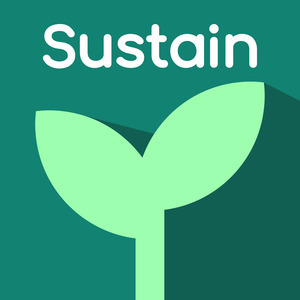Episode 140
Courtney Miller and Hongbo Fang on Toxicity and Information Flow in Open Source Communities
September 30th, 2022
45 mins 55 secs
About this Episode
Guest
Courtney Miller | Hongbo Fang
Panelists
Richard Littauer | Eriol Fox
Show Notes
Hello and welcome to Sustain! The podcast where we talk about sustaining open source for the long haul. We are super excited to talk to our guests today on the topic of toxicity in open source. Today, we have joining us, Courtney Miller and Hungbo Fang, who are both PhD students at Carnegie Mellon University. We asked them to come on because we were curious about their work, and they came highly recommended by Bogdan Vasilescu. We’ll hear more about Courtney’s talk and her paper on her award-winning work exploring toxicity in open source communities, and we’ll find out the work Hongbo has done focusing on information flow and where people talk about open source. Download this episode now to learn more!
[00:02:49] Courtney tells us about the talk she gave at the Linux Open Source Summit on her work exploring toxicity in open source communities.
[00:03:55] We find out if there was a data set that was used to find the information.
[00:05:08] Hongbo focuses on information flow and where do people talk about open source, and he tells us what his involvement is with this work.
[00:06:57] Courtney tells us what she saw within the hundred issues and how she broke them down and tagged them to get to the conclusions she had.
[00:08:44] We hear how Courtney used the technical definition of toxicity introduced by Google’s Perspective API tool to inform the decisions of what toxicity means.
[00:12:01] Eriol wants to know whether Courtney’s had thoughts or intentions of looking into the content moderation space to see if there’s any similarities between what’s happening there.
[00:14:29] Richard wonders what we can do to improve the state of toxicity in open source and wonders if she has any future work that can make this better.
[00:16:08] Hongbo shares his thoughts about the future and what we can do to solve this from a quantitative angle.
[00:17:02] Based on Courtney’s work, we find out if she thinks AI has improved, if she has hope, and Hongbo shares his thoughts as well.
[00:19:20] Eriol wants to know how community members can help researchers by talking about things that are less referenced in the paper, and how Courtney thinks about tackling some of the harder to read parts of toxicity with new emerging spaces.
[00:24:54] We find out if there’s a place where open source could have a restorative justice around toxicity and what action is there for the open source community to move from talking about our experiences of toxicity to how we can heal.
[00:27:40] Hongbo explains what his work is mainly focused on, how he’s holding this space, and suggestions he has for the future on how we can improve information flow.
[00:34:31] Richard talks about a paper called, The Tyranny of Structurelessness by Jo Freeman, and wonders if Hongbo has any suggestions for how to help open source projects with information gap issues.
[00:39:33] Find out where you can follow Courtney, Hongbo, and their work online.
Quotes
[00:12:11] "Open source toxicity is not new, it’s very old. The long-term effects of this toxicity, especially in open source, is why I was really moved to do this research.”
[00:14:56] “If you can identify toxic comments, and deal with them, instead of making the maintainers spend the emotional labor every time dealing with this stuff – [that] can be very helpful.”
[00:15:17] “Maintainers are often toxic in their own projects.”
[00:15:40] “We have issue templates – what about issue response templates?”
[00:25:47] “If a community has leadership that tolerates certain things, it’s going to happen. If the community has leadership that does not tolerate certain things, it’s not going to happen.”
Spotlight
- [00:41:21] Eriol’s spotlight is Digital Safety Snacks by Pen America.
- [00:41:58] Richard’s spotlight is an article he read called, The Opposite of Rape Culture is Nurturance Culture by Nora Samaran.
- [00:42:40] Hongbo’s spotlight is the book, Roads and Bridges: The Unseen Labor Behind Our Digital Infrastructure by Nadia Eghbal.
- [00:43:32] Courtney’s spotlight is the book, Working in Public: The Making and Maintenance of Open Source Software by Nadia Eghbal, and the tool, Betty.
Links
- SustainOSS
- SustainOSS Twitter
- SustainOSS Discourse
- podcast@sustainoss.org
- Richard Littauer Twitter
- Eriol Fox Twitter
- Courtney Miller Twitter
- Courtney Miller-GitHub
- Courtney Miller LinkedIn
- Hongbo Fang Twitter
- Hongbo Fang LinkedIn
- Sustain Podcast-Episode 40: How Open Source Maintainers Don’t Get Rich with Bogdan Vasilescu
- Perspective API
- Christian Kästner
- Kat Lo Twitter
- Meedan Twitter
- Open Source Diversity
- The Tyranny of Structurelessness by Jo Freeman
- “Did You Miss My Comment or What?” Understanding Toxicity in Open Source Discussions (paper)
- Roads and Bridges
- Sustain Podcast-Episode 51: Working in Public: Nadia Eghbal and her new book about Making and Sustaining Open Source Software
- Nadia Asparouhova (Eghbal) Website
- Digital Safety Snacks by Pen America
- The Opposite of Rape Culture is Nurturance Culture by Nora Samaran
- Roads and Bridges: The Unseen Labor Behind Our Digital Infrastructure by Nadia Eghbal
- Working in Public: The Making and Maintenance of Open Source Software by Nadia Eghbal
- Betty
Credits
- Produced by Richard Littauer
- Edited by Paul M. Bahr at Peachtree Sound
- Show notes by DeAnn Bahr Peachtree Sound
